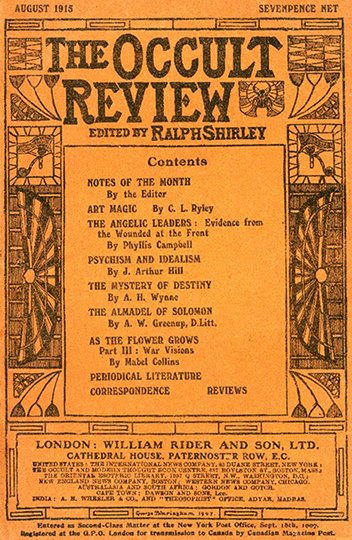In the 1980’s I began gathering material for the novel. I got a Xerox copy of Ralph Shirley’s

fifteen-page pamphlet–“The Angel Warriors at Mons: Numerous Confirmatory Testimonials: Evidence of the Wounded: An Authentic Record”–and the two sides of the front cover. Putting together material for talks I am giving, I noticed that the back side of the front page of the cover was signed “Arthur Machen” with the name of a place and the year1930. Machen, author of The Bowmen, lived until December, 1947.
I am trying to find a sample of Machen’s signature. I am doing this just for research fun. Being a xerox of a badly worn cover, my document would be of no monetary value. But as a possibility, it is interesting to consider that Arthur Machen owned it. Naturally, Ralph Shirley’s pamphlet would have interested him. In it, he “demonstrates” that what Arthur Machen wrote was communicated to him telepathically from the battlefield. Therefore, it, along with many pages of “testimony” from soldiers who saw the angels, is evidence that St. George and his host of angels really did fight on the side of the British Expeditionary Force at the battle of Mons.


